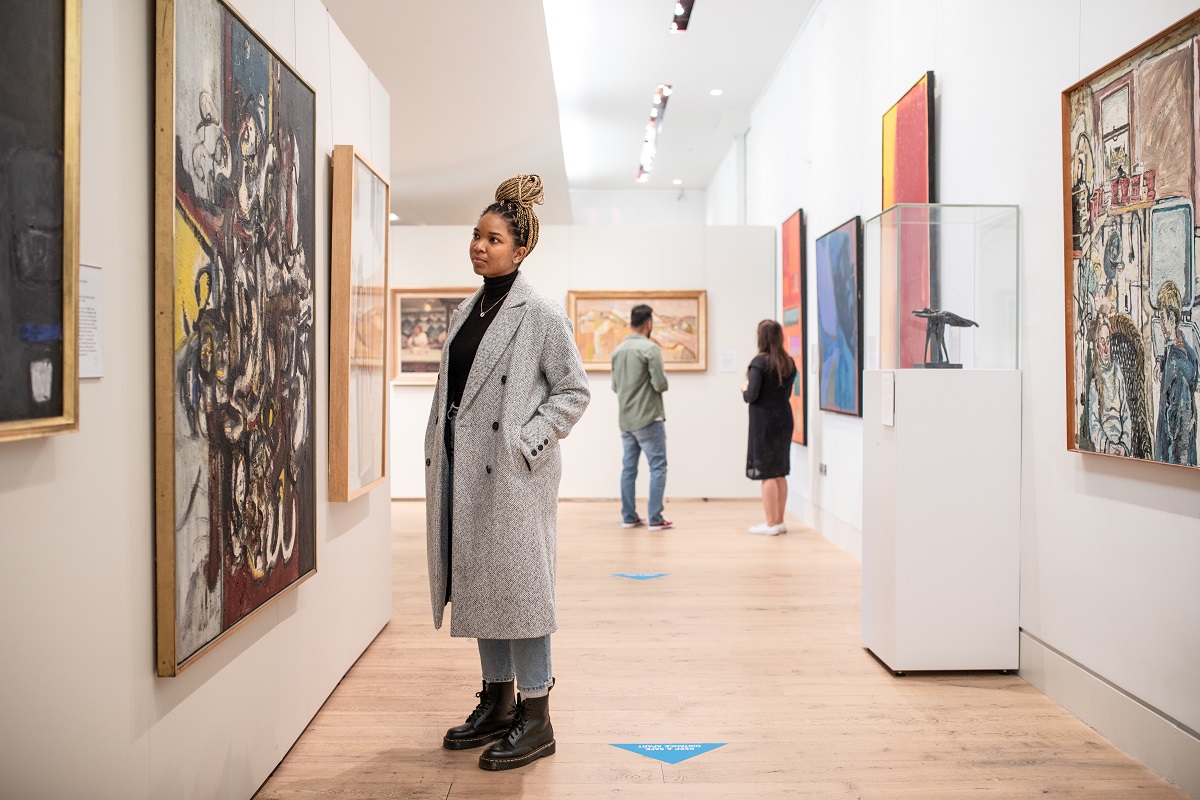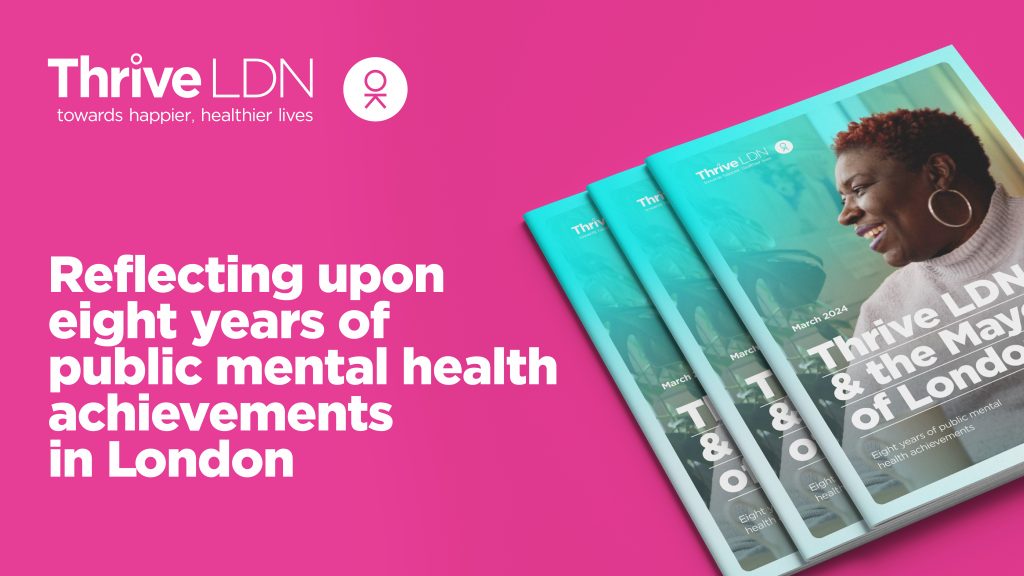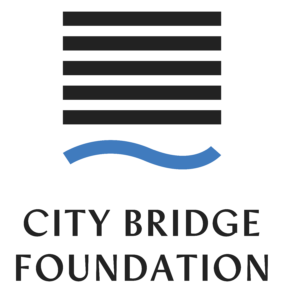Sad to see the final closure announcement from Arts and Health South West (AHSW), with their…

Vision Paper: Culture, health and wellbeing
SUMMARY
What do we know about the value and impact of culture in relation to health and wellbeing?
Between October 2019 and November 2022, the Centre undertook an extensive literature review within our thematic area of culture, health and wellbeing.
We used a systematic and critical approach to understand the strength of the evidence base, highlight where current gaps in knowledge lie, and outline implications for future research, funding and policy development.
This vision paper reflects on the range and quality of research identified. It also suggests several ways strategic investments in culture, health and wellbeing research could support the roll-out and scale-up of successful interventions.
You can read highlights from this vision paper below, including key recommendations for researchers and policymakers. Alternatively, download the vision paper (PDF document) by clicking the button above. Read Doc here
Background
Between October 2019 and November 2022, we reviewed extensive literature within our thematic area of culture, health and wellbeing. This theme was seen as being particularly relevant due to the sharp growth in interest in the field by researchers and policymakers.
We explored the literature using a systematic and critical approach to understand the strength of the evidence base, highlight where current gaps in knowledge lie, and outline implications for future research, funding and policy development.
As part of this theme, we explored the following six topics:
-
-
- Culture on referral or social prescribing through the arts
- The experiences of cultural practitioners working in healthcare spaces (not yet published due to lack of literature)
- Training and development of healthcare students
- Young people’s mental health
- Older people’s physical health
- Older people’s wellbeing and social connection
-
These topic areas were drawn from our scoping and consultation events held over winter 2019-2020 and influenced by our sector survey, as well as reflecting the expertise and research interests of Dr Robyn Dowlen (Postdoctoral Research Associate, 2019-22).
Each individual research review was shaped through our engaged research process, in consultation with practitioners, researchers and policymakers. The research digests outlined the current evidence base for each topic. We have developed complementary materials for each research area, including blogs, podcasts, case studies, conference presentations and reading lists.
In reviewing the literature, we observed a clear growth in interest in the area of culture, health and wellbeing over the past decade. There was a wide range of studies reporting on different cultural programmes and experiences (and their relationship to myriad mental health, physical health and wellbeing outcomes).
The literature within this field is largely concentrated in England, the USA, Canada and Australia. The nature of our rapid review process meant that non-English language journal articles were excluded due to the time and resource needed to translate materials, so this review does not purport to present a truly global perspective.
Despite this caveat, we can assert with confidence that the UK (specifically England) is a research hotspot regarding culture, health and wellbeing research, producing a third of the studies represented across the six reviews.
Numerous research disciplines are represented within this area, with a significant proportion of research bringing together researchers from numerous disciplines to address complex questions. As an example, Figure 1 outlines the spectrum of disciplines represented in the ‘Older people: culture, community, connection’ review.

It is important to note that most research in this area was published by researchers from the sciences and social sciences rather than arts and humanities. There were also very few named cultural practitioners, organisations or those with lived experience of mental or physical health challenges represented in author lists.
Overview of review findings
The following section provides a summary of the key findings from each topic areas explored as part of our culture, health and wellbeing theme.
Cultural on referral
We identified 13 studies that examined impacts and outcomes relating to culture on referral (or arts on prescription) programmes. All studies demonstrated positive outcomes on participants’ sense of wellbeing, with participants reporting an increased sense of confidence, self-esteem and social connectivity.
Training and development of healthcare students
We identified 20 studies that examined impacts and outcomes relating to the use of culture in the training and development of healthcare students. Programmes incorporating drama and theatre techniques, especially those that used role-play and improvisation, were most commonly associated with improving students’ understanding of patient perspectives and experiences.
There was also emerging evidence of improvements in observational skills as a result of engaging with gallery-based programmes, especially those led by staff members trained in specific viewing techniques (e.g. the Art of Observation).
Young people’s mental health
We identified 20 studies that examined impacts and outcomes relating to young people’s mental health and wellbeing – an increasingly salient area for policy, particularly following the Covid-19 pandemic. Music participation was shown to improve young people’s confidence and self-esteem, which led to increased feelings of wellbeing. Song and lyric writing were shown to be particularly beneficial for helping young people to express their emotions.
Older people’s physical health
We identified 23 studies that examined the role of cultural programmes in supporting older people’s physical health. Dance programmes were shown to have a positive impact on older people’s physical function, balance and posture.
Older people’s wellbeing and social connection
We identified 70 studies that examined the role of cultural participation in supporting feelings of wellbeing and social connection for older people. The strongest evidence was in relation to community-based singing, which was shown to help older people cope with bereavement, develop new friendships and improve overall feelings of wellbeing and social connectedness.
Reflections on the evidence base
The following section brings together our reflections on the evidence base as it stands at the date of publication. It discusses both the strengths and limitations of current evidence and reflects on how it might be strengthened in the future.
These observations reflect some of the key challenges of conveying the value of culture in the context of people’s health and wellbeing.
We have broken these reflections down to highlight the key areas that arose in our analysis of the research:







